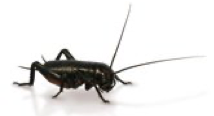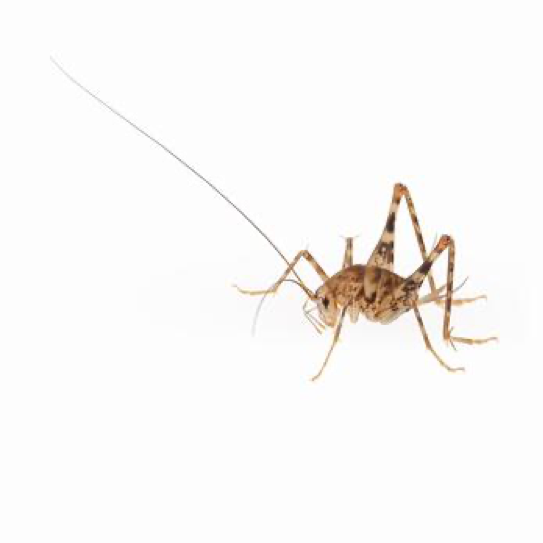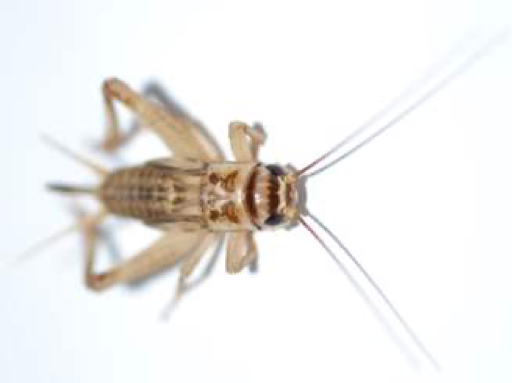
Crickets are noisy, large insects that hide out in dark areas around your home like garages, crawl spaces, sheds, under porches, and other spaces that you seldom visit. Although they aren’t inherently dangerous, crickets can truly drive you crazy with their incessant chirping. Some can be alarming in size and jump with their long legs when frightened. While all crickets can be identified by their powerful hind legs, it is only the male crickets who chirp in order to attract females. There are two types of crickets that are commonly found in California: camel crickets and house crickets.
What kind of crickets live in California?
There are many species of cricket that live throughout our the central valley and Bay area. The most common that you’ll encounter are camel crickets and house crickets. If you are unsure of what kind of crickets are living in your home, call AAI Pest Control for a professional inspection.
Camel Crickets

Camel crickets, also called spider or cave crickets, are much larger than other crickets that you’ll encounter in California. They are between ½ -1½ inches long, with humpback-shaped legs. Camel crickets are light to dark brown in color and live within cool, moist environments. You can find camel crickets living among other household pests in places such as garages, sheds, crawl spaces, and under woodpiles. Anywhere that high levels of moisture exists can attract camel crickets. They are harmless to humans but can be alarming due to their size.
House Crickets

House crickets typically live outdoors but they can live within homes in large numbers. They grow between ¾- 1 inch long when fully grown and are a light yellowish-brown in color with three dark bands on their heads. House crickets will attack paper, damage silk, woolens, fruits, and vegetables all kinds of foods, and even rubber. However, unless large numbers occur, such damage is usually minor. House crickets like warm places such as kitchens, fireplaces, and cracks and crevices and behind baseboards. Though they can be irritating, house crickets are harmless to humans.
What attracts crickets to my house?
Crickets live indoors where they find warmth and moisture. You’ll usually see an increase in cricket activity within your home during the fall and winter as they seek out moisture that’s no longer as abundant outdoors. Crickets generally like to inhabit dark and moist areas such as garage or crawlspaces. They are most active at night, hiding in dark warm places during the day. Just like flies and mosquitoes, crickets are attracted to lights, and often flock to them by the thousands.
Are crickets dangerous?
Crickets aren’t picky and will consume nearly anything they find. This behavior can lead to clothing and curtain damage if the cricket infestation is heavy. Like most household pests, crickets try to avoid humans. They thrive where conditions are dark, humid, and have low foot traffic, including crawl spaces, sheds, and garages to name a few. The good news is that crickets are not a health risk to humans. They have no interest in humans and actively avoid them. These jumping pests often travel alone so if you hear chirping, that doesn’t necessarily mean you have a significant infestation.
How can I get rid of crickets?
Making changes to the landscaping on your property is helpful in reducing the number of crickets infesting your home. Be sure that your lawn is well maintained and there are not wood piles, debris, or mulch up against your home. Always close garage and shed doors. Try installing door sweeps and repairing or replacing old or broken garage doors. Sealing cracks and crevices where they can get in to the home is one of the best ways to prevent crickets from getting indoors. You can also switch to yellow (sodium vapor) lights outside since they will attract fewer crickets to them.
Call us or fill out the contact form on this page to learn more about how AAI Pest Control can get rid of crickets and prevent crickets from getting into your home!



